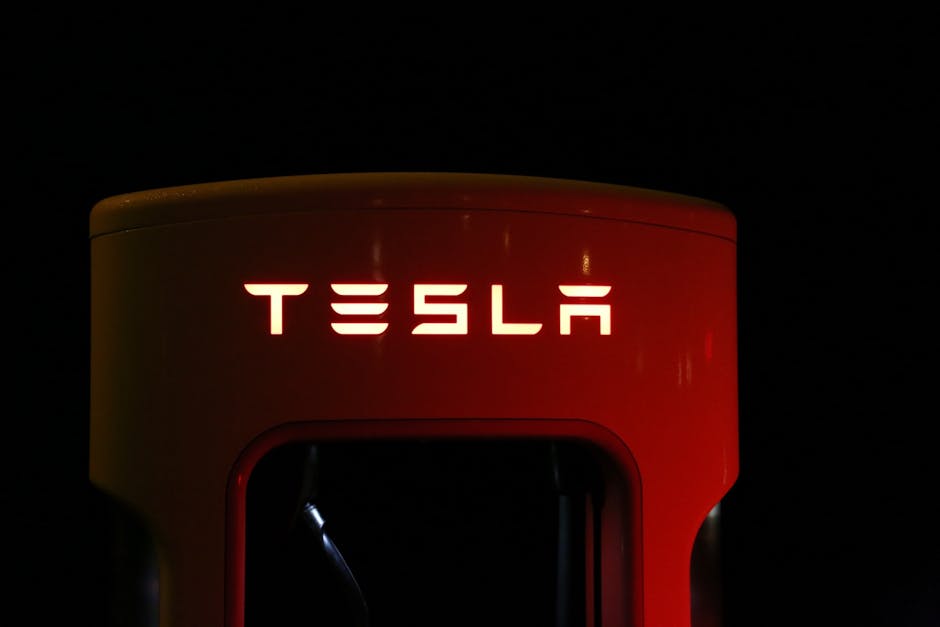AI Predicting EV Performance and Maintenance – A Smart Future Awaits
Electric vehicles (EVs) are rapidly revolutionizing the automotive landscape, not only in the way we drive but also in the way we maintain them. One of the key players in this transformation is artificial intelligence (AI), which is becoming increasingly integral in predicting EV performance and maintenance needs. In this article, we will delve into how smart algorithms enable enhanced predictive capabilities for electric vehicles, reshaping our understanding of maintenance and efficiency.
Navigating the realm of EVs can often be challenging—ranging from understanding battery health to making sense of charging behaviors and overall performance metrics. Fortunately, the rise of AI is stepping in to assist both manufacturers and drivers, eliminating many uncertainties typically associated with vehicle maintenance.
Understanding the Intersection of AI and EVs

Artificial intelligence has long been making waves across numerous industries, and the automotive sector is no exception. The intertwining of AI with EV technology stands as one of the most promising developments in recent years. Algorithms analyze vast amounts of data to generate insights that are both predictive and prescriptive. This means that, rather than waiting for a problem to arise, EVs equipped with AI technology can often foresee maintenance issues before they even occur.
How AI Algorithms Work for Predictive Maintenance

Predictive maintenance is all about using data and analytics to anticipate potential failures. For EVs, AI algorithms leverage data from multiple sources including vehicle sensors, user behaviors, and environmental conditions. Here’s how it generally works:
-
Data Collection: EVs are packed with numerous sensors that gather real-time data about performance, charging patterns, battery health, and even driving style. For instance, if you consistently accelerate rapidly, the system flags this behavior and can suggest modifications to enhance battery life.
-
Machine Learning Models: The collected data is fed into machine learning models that learn from historical patterns and outcomes. By comparing current sensor data with historical cases, algorithms can predict when a part is likely to fail or when the battery will lose efficiency.
-
Actionable Insights: Finally, the AI translates its predictions into actionable maintenance suggestions. For example, it may alert the driver about necessary battery replacements or servicing needs, which can significantly lower the risk of breakdowns and improve the vehicle's longevity.
Benefits of AI Predictive Maintenance

Integrating AI into EV maintenance offers numerous advantages that benefit both manufacturers and consumers. Here are some key benefits:
-
Cost Effectiveness: Detecting issues before they become significant can save money on repairs and reduce downtime significantly. Fleet operators effectively minimize maintenance budgets by scheduling timely interventions based on AI insights.
-
Time Efficiency: Smart algorithms streamline the maintenance process, allowing for just-in-time servicing based on real-time data rather than routine checks that may not always be necessary.
-
Enhanced Safety: Predictive maintenance helps identify potential mechanical failures that could compromise safety, giving drivers peace of mind and reducing road hazard risks.
-
Extended Vehicle Life: By keeping critical components in optimal condition, AI can help prolong the lifespan of the vehicle, ensuring that EVs remain efficient and reliable over time.
Exploring Real-World Applications

One exciting real-world application of AI in EV predictive maintenance is coming from companies like Tesla. Tesla employs data from its extensive fleet to continually improve its algorithms. The feedback loop allows for a dynamic learning environment that optimizes not just performance but also maintenance scheduling—an effective model being replicated by many other manufacturers.
Moreover, Amazon's predictive maintenance initiatives in its transportation fleet have also begun influencing the automotive industry. Their algorithms help forecast maintenance needs based on vehicle data, which aligns closely with the ongoing trends in EV technology. Read more about how AI improves fleet management in the article Beyond the Battery: Discover the Future of Sustainable EV Manufacturing.
The Future of AI in EV Maintenance

The landscape of AI and EVs is ever-evolving. As more connected vehicles join the roads, the data pool available for analysis will grow exponentially. The continued advancement of 5G technology will further enable more sophisticated real-time data analysis, allowing for instantaneous feedback and servicing recommendations.
Notably, AI is not just focusing solely on maintenance. The technology is also becoming an integral part of vehicle design and user interface. For example, custom driving experiences powered by AI insights can revolutionize personal mobility, making it a topic of exploration in articles like AI-Powered Personalization: The Future of Your EV Driving Experience.
Exploring advancements in AI further leads us to consider implications for urban planning. As AI informs how we manage our vehicles, it naturally influences the structure of cities. Conversations around charging infrastructure can be enriched by predictive analyses that suggest optimal locations for charging stations, helping communities evolve into more sustainable environments. For deeper insights into this aspect, refer to Navigating the Future: How Autonomous EVs Shape Smart Cities.
The Role of Consumer Education

With the increasing sophistication of AI in EVs, there is also a growing need for consumer education. Understanding how to leverage these technologies can vastly improve the ownership experience. For example, an educated consumer can better utilize the real-time analytics available through an EV app to understand their driving habits and maintenance needs.
It’s essential that consumers know that they play a significant role in the ecosystem of predictive maintenance by adapting their behaviors based on insights provided by AI. This symbiotic relationship allows both AI technologies and drivers to succeed in optimizing the performance of EVs.
Ethical Considerations in AI and EV Infrastructure

As with any burgeoning technology, ethical considerations should be at the forefront of the AI-EV discussion. Issues of data privacy and the potential for misuse of data are huge concerns that need addressing. The responsibility lies not only with manufacturers to ensure data protection protocols are strictly followed but also with consumers to be aware of how their data might be used or shared.
Research from recognized authorities like the Harvard Business Review highlights the importance of transparency in AI data usage. It's vital that consumers feel their data is being protected while still benefiting from the intelligent insights that AI can bring.
Moving Forward with AI in EV Lifecycle Management

Despite the nascent stage of technology, the future of automotive maintenance is taking exciting strides towards automation, efficiency, and sustainability. As electric vehicles become more prevalent, the role of AI in predicting performance and maintenance will only gain momentum.
Beyond performance and upkeep, there are far-reaching implications for our society, including reduced emissions and improved urban living conditions due to intelligent transport systems that help minimize congestion and optimize routes. The integration of these advanced algorithms facilitates a smoother transition to sustainable transport networks.
Final Thoughts
The integration of AI in electric vehicle maintenance isn't merely a tech trend; it’s a pivotal approach to redefining how we think about vehicle ownership. Although we are still in the early days of its full emergence, the potential for smarter, more efficient, and sustainable vehicle management is astronomical.
As we collectively drive towards a future teeming with electric vehicles, embracing AI’s capabilities can lead to a more intelligent, greener tomorrow. Encouragingly, these developments indicate that with the right insights and tools, we may soon see cars that not only drive themselves but also take care of their own health—giving rise to a new era of smart, connected mobility.



